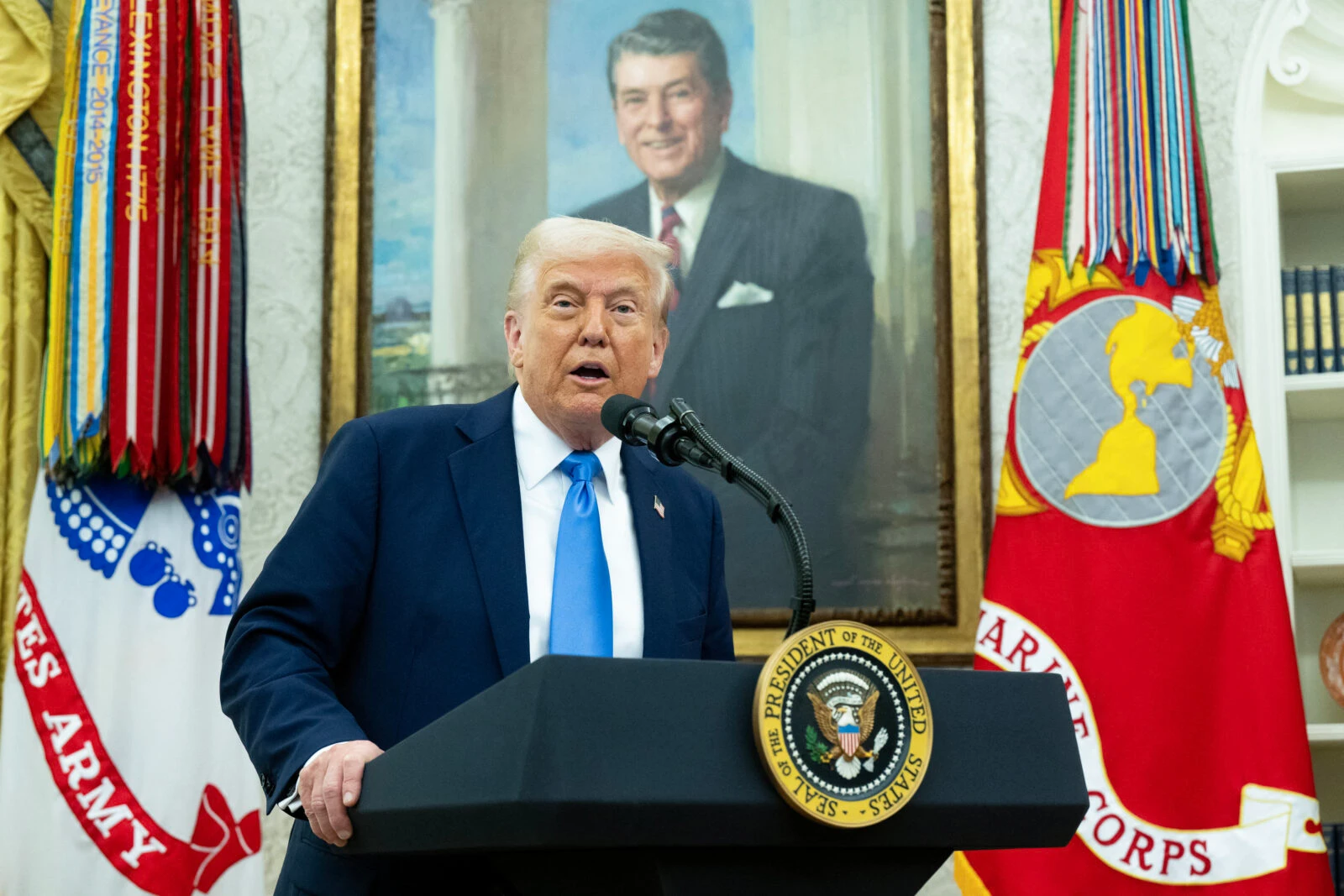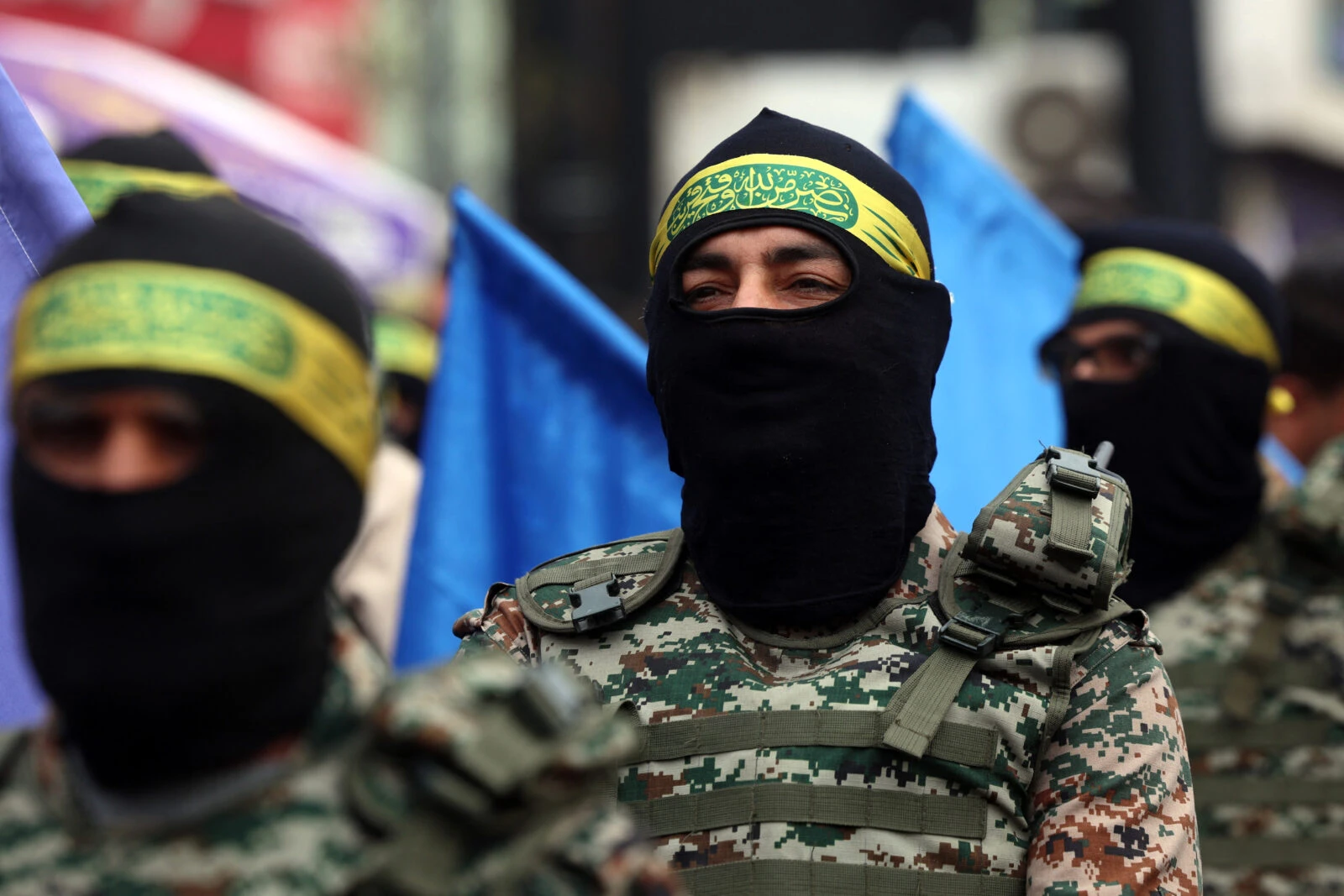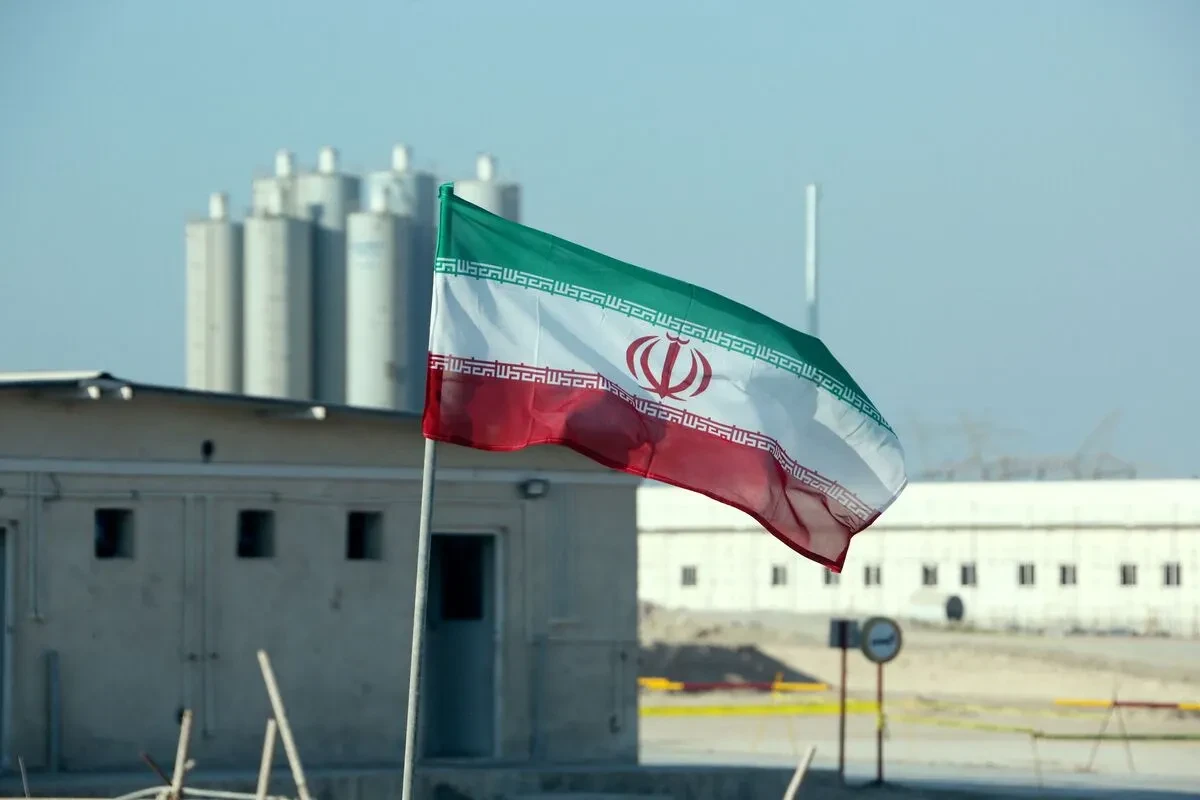Trump threatens Iran with ‘very bad things’ if nuclear talks fail
 US President Donald Trump speaks during a swearing in ceremony for Alina Habba as US Attorney General for New Jersey, in the Oval Office of the White House in Washington, DC, on March 28, 2025 (AFP Photo)
US President Donald Trump speaks during a swearing in ceremony for Alina Habba as US Attorney General for New Jersey, in the Oval Office of the White House in Washington, DC, on March 28, 2025 (AFP Photo)
US President Donald Trump warned Iran on Friday that “very bad things” will happen if the country refuses to negotiate a resolution to its nuclear program.
The comments came after Iran’s response to a letter Trump had sent to Supreme Leader Ali Khamenei.
During a White House ceremony, Trump addressed the ongoing standoff over Iran’s nuclear ambitions and reiterated his preference for a diplomatic solution. “I sent them a letter just recently, and I said, You have to make a decision, one way or the other, and we either have to talk and talk it out, or very bad things are going to happen to Iran. And I don’t want that to happen. My big preference—and I don’t say this through strength or weakness—my big preference is that we work it out with Iran. But if we don’t work it out, bad, bad things are going to happen to Iran.”

Iran’s response: Continued refusal for direct talks
Iran has firmly rejected direct negotiations with the United States, continuing to insist on indirect talks through intermediaries like Oman.
Iranian Foreign Minister Abbas Araqchi confirmed on Thursday that Tehran had responded to Trump’s letter, but reiterated that the Islamic Republic would not engage in direct talks as long as it faces what it describes as “maximum pressure” and military threats from the U.S.
“Iran’s policy is to engage in indirect negotiations as long as the Islamic Republic is subjected to maximum pressure and military threats,” Araqchi stated. “Indirect negotiations, though, can continue, as they existed in the past.”
Despite the tension, Trump remains adamant about his willingness to discuss a deal that could avert military escalation.

Trump’s ‘maximum pressure’ campaign
Trump’s letter to Khamenei, delivered via intermediaries, marks the latest chapter in his “maximum pressure” campaign against Iran.
In 2018, Trump unilaterally withdrew the U.S. from the 2015 nuclear deal, known as the Joint Comprehensive Plan of Action (JCPOA), and reimposed harsh sanctions on Tehran. Since then, Iran has gradually rolled back its commitments under the agreement, citing the failure of the remaining parties to protect its interests.
Trump’s recent remarks emphasize the urgency of finding a resolution: “Iran is very high on my list of things to watch. … We will have to talk it out, or very bad things are gonna happen to Iran, and I don’t want that to happen.”

Iran’s nuclear progress, potential consequences
Trump’s threat comes as Iran’s nuclear program continues to advance, with Tehran’s stockpile of enriched uranium increasing.
The country has reportedly accumulated enough uranium enriched to 60% purity, a significant step toward achieving weapons-grade material.
In response, Iran’s parliament speaker, Mohammad Qalibaf, warned that if the U.S. follows through on its military threats, Iran would retaliate: “If the Americans attack the sanctity of Iran, the entire region will blow up like a spark in an ammunition dump. Their bases and those of their allies will not be safe.”



